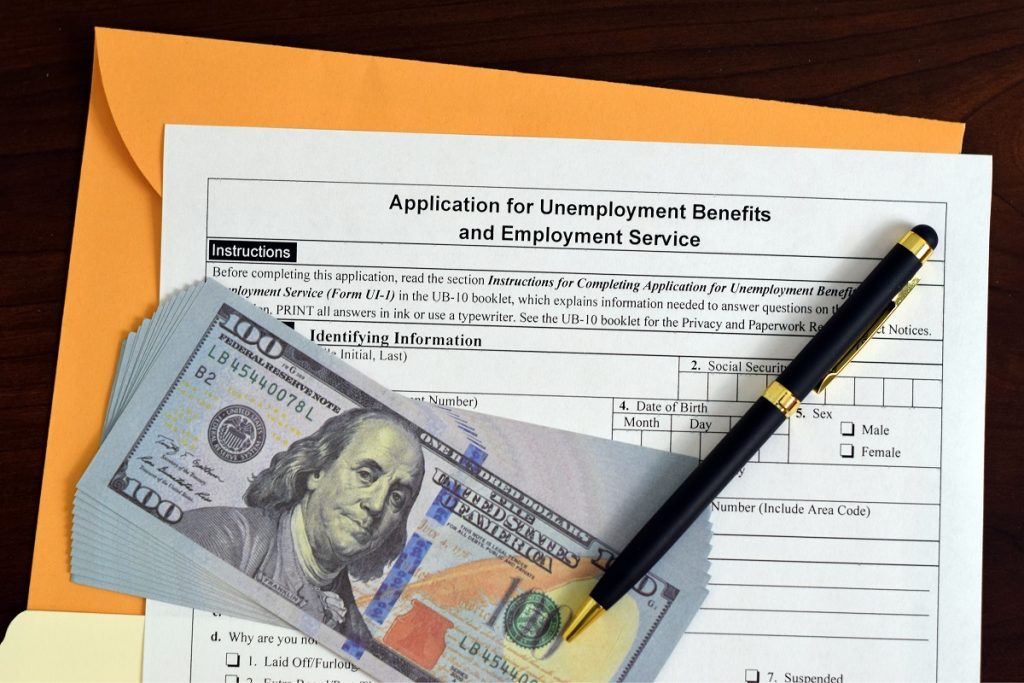During the recent pandemic, many workers spent their time away from their physical office doing their work from another state. Though many employers continue to allow this arrangement now that work life is returning to normal, working remotely from another state has numerous tax implications.
While working remotely from another state offers numerous benefits, such as flexibility and lower living costs, it can also have significant implications, especially regarding taxes. When you do not live and work in the same area, you may owe tax in several jurisdictions.
This article examines the various tax implications of working remotely from another state and provides tips on navigating complex issues like state income tax, state tax, and employer withholding requirements.
Table of Contents
What Are The Benefits Of Working Remotely From Another State?
Remote employees working from another state have several benefits.
- They can live in an area they enjoy, such as being close to family or friends.
- They can live in a lower-cost-of-living area, which can lead to significant savings.
- Working remotely can provide greater flexibility regarding work hours and location, enhancing work-life balance.
- It can offer the chance to explore new areas and cultures, which can be enriching and fulfilling.
- It also offers an opportunity to avoid long commutes, saving time and reducing stress.


What Is The Difference Between Working Remotely And Telecommuting?
Technically, telecommuting means working out of the office some or much of the time in contrast to always working from home. The terms are blurred now since the 1970s when the term first came into use. The implication, though, is that if employees need to come into the office occasionally, this might be difficult to do routinely if the office were in NY and the person worked in Hawaii.
Telecommuting and remote work are frequently used interchangeably, though there are subtle distinctions between them. Remote work typically entails working for a company without a central location as an independent contractor or a distant employee. In contrast, telecommuting typically involves employees working part or full-time from their own homes, with occasional visits to a central office.
What Happens If You Work Remotely In Another State?
Working remotely in another state can have significant financial implications, particularly with regard to taxes. In some cases, you may be required to pay income taxes to the state where you work and where you reside. This can result in higher tax bills and increased complexity in tax filing.
Additionally, you may be subject to different state and local taxes, such as sales or property taxes, which can affect your overall financial situation. You must be familiar with the tax implications of working remotely in another state to ensure compliance with taxpayer laws and minimize any potential negative financial impact.
Can You Work Remotely While On Vacation?
Yes. If you go to another state, you will probably not have to pay taxes there if you are there for a short time. This can get tricky if you are there for an extended time. Some states have a “first-day rule” that obliges you to pay taxes immediately.
If you go to another country and do a little remote work while on vacation, you can probably do this without scrutiny. If you work from there, you technically need another type of visa. Many countries have dealt with an increasing number of foreign remote workers by issuing digital nomad visas.
How Do I File Taxes If I Work Remotely?
Filing taxes if you work remotely can be more complicated than if you work in a traditional office setting. The exact process will depend on various factors, including the state in which you work and live, as well as whether you are classified as an employee or a contractor. In general, you will need to file taxes in the state where you earn income and may also need to file in the state where you reside.
It is important to keep detailed records of your income, expenses, and tax payments to ensure that you comply with tax laws and avoid penalties. Consider working with a tax professional who is familiar with the tax implications of remote work to ensure that your taxes are filed correctly.
Many companies who did not sanction remote work pre-pandemic are now making it available to some employees, while more employees want to work remotely. Understanding tax consequences is important for both employers and employees!
Where Do You Pay Tax If You Work Remotely?
If you work remotely, determining where to pay taxes can be complex and will depend on several factors. Generally, you will need to pay taxes to the state where you perform the work and possibly to the state where you reside.
The rules regarding state taxes can vary significantly, and it is important to understand the specific regulations of the states involved. In some cases, you may be eligible for tax credits or deductions to minimize the impact of dual taxation.
Can You Get Double Taxed Working Remotely?
It is possible to be double-taxed when working remotely, especially if your state of residence differs from the one you work in. This can occur when both the state where you work and the state where you live impose income taxes on your earnings.
However, there are ways to avoid or minimize double taxation, such as claiming tax credits or deductions for taxes paid to the state where you work. Usually, you will get some credit for paying taxes where you work and where you live.
You must understand state tax laws and keep detailed records of your income and tax payments.

How Long Can You Work Remotely In Another State?
The length of time you can work remotely in another state without triggering tax or other legal obligations depends on several factors. These include the state laws and the specific details of your employment arrangement. In some cases, there may be a time limit, such as 30 or 60 days, before you are required to register as a foreign entity or pay taxes in the state where you work.
How Can You Move To Another State To Work Remotely?
Before making any decisions, check with your employer to see if this arrangement is feasible. Some companies may have specific policies or restrictions that prohibit employees from working outside of certain states or countries.
Assuming your employer approves, the next step is to determine if your budget allows for potential dual residences. Moving to a new state for only part of the year means you’ll have to cover the costs of living in two places, so it’s essential to calculate your expenses carefully. This includes rent or mortgage payments, utilities, transportation, and other living costs.
It’s important to check out the tax implications of working in a different state. Each state has its own tax laws, and working remotely from a different state could mean you’ll be subject to taxes in both states. You may need to consult a tax professional to ensure you follow all the appropriate regulations.
Unemployment Benefits When Working Remotely From Another State
Whether or not you can work remotely from another state and still receive unemployment benefits depends on several factors, including the specific state laws and the nature of your work arrangement. In general, if you’re actively seeking employment and available to work, you may still be eligible for unemployment benefits even if you’re working remotely from another state.
However, if you’re not actively seeking work or if you’re working full-time and earning a significant income, you may not be eligible. It’s important to check with your state’s unemployment office for specific guidelines and requirements.
Being Laid Off While Working Remotely
If you’ve been laid off while working remotely in the USA, several resources are available to help you navigate this difficult situation. First and foremost, you may be eligible for unemployment benefits through your state’s unemployment insurance program. You can apply online or by phone, and you’ll need to provide information about your work history and earnings.
If you’re struggling with financial hardship, you may also be eligible for government assistance programs like SNAP (Supplemental Nutrition Assistance Program) or TANF (Temporary Assistance for Needy Families).

Is It OK To Work Remotely From Another Country?
Working remotely from another country depends on several factors. Firstly, it depends on your employer’s policies and whether they allow employees to work remotely from other countries. Some companies may have restrictions due to legal or logistical reasons.
Secondly, it’s important to ensure that the Wi-Fi and other technical infrastructure in the country you plan to work from are reliable and stable, so you can be available when needed. This can be especially important if you attend online meetings or conferences.
Thirdly, it’s important to consider how long you plan to stay in the other country. Most visas have time limits, and you may need to apply for a work visa or other permit to work while abroad legally. Some countries have introduced new digital nomad visas that allow remote workers to stay for extended periods. Still, these visas typically have time limits of 60 or 180 days or perhaps a year.
Digital nomads from the U.S. must always pay income tax; many foreign countries require a certain length of stay before they have to pay to the host government charges them.
Further Aspects And Advice About Working Remotely From Another State
For tax purposes, your domicile or permanent residence is where you intend to return after being away. If you’re working remotely across state lines, you may need to determine whether you’re considered a resident of that state for tax purposes.
A Convenience Rule
Some states have a “convenience rule,” which means that if you’re working from a location in the state for your own convenience rather than because your employer requires it, you may still be subject to that state’s tax rules.
Self-employed individuals and small business owners should also know the state tax obligations of working remotely from another state. The state where you have your home office or permanent residence may require you to file a state tax return even if you’re not physically in the state.
For example, let’s say you’re a CPA who lives and works in Illinois, but you’re temporarily working remotely from Connecticut. Connecticut has a convenience rule, so you may need to file a non-resident tax return in Connecticut in addition to your Illinois tax return. Similarly, if you’re a self-employed individual based in Texas who’s working remotely from Wyoming, you may need to file a state tax return in Wyoming.

Different States, Different Tax Rates
It’s also important to consider the tax rates in the states where you work and live. Some states have higher tax rates, affecting your overall tax liability. For example, if you work remotely from California but your permanent home is in a low-cost state like Arkansas, Pennsylvania, or Tennessee, you may be subject to California’s higher tax rates.
If you work in New York but live in New Jersey, you must pay New York state income tax on your earnings and file a non-resident tax return in New York. Similarly, you must pay New Jersey state income tax on your earnings and file a resident tax return in New Jersey.
Consult with a tax professional or the IRS if you have questions or concerns about your tax obligations.
Reciprocal Agreements
Some U.S. states have reciprocal agreements regarding remote workers paying tax. Reciprocal agreements allow residents of one state who work in another state to avoid paying income tax in both states, and instead pay only in their state of residence.
Here are some examples of states that have reciprocal agreements:
- New Jersey and Pennsylvania: These states have a reciprocal agreement that allows residents of one state who work in the other state only to pay income tax in their state of residence.
- Illinois and Iowa: These states have a similar reciprocal agreement for residents who work across the state line.
- Wisconsin and Illinois: These states have a partial reciprocal agreement that applies to certain types of income, such as wages and salaries.


